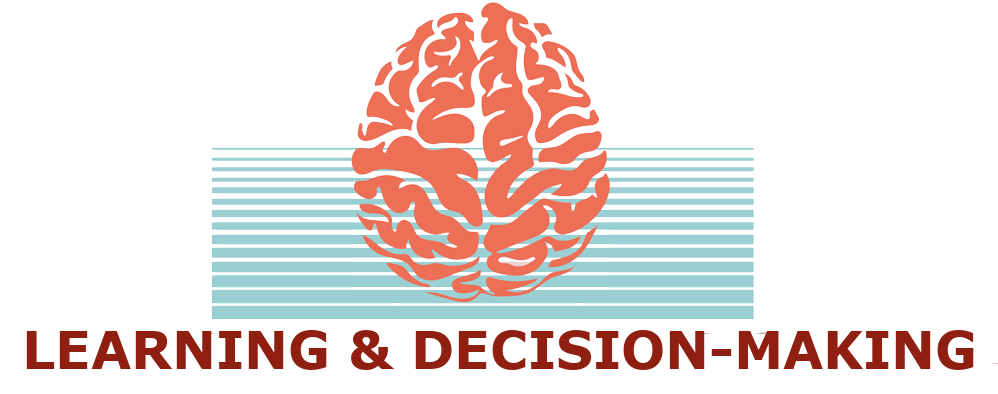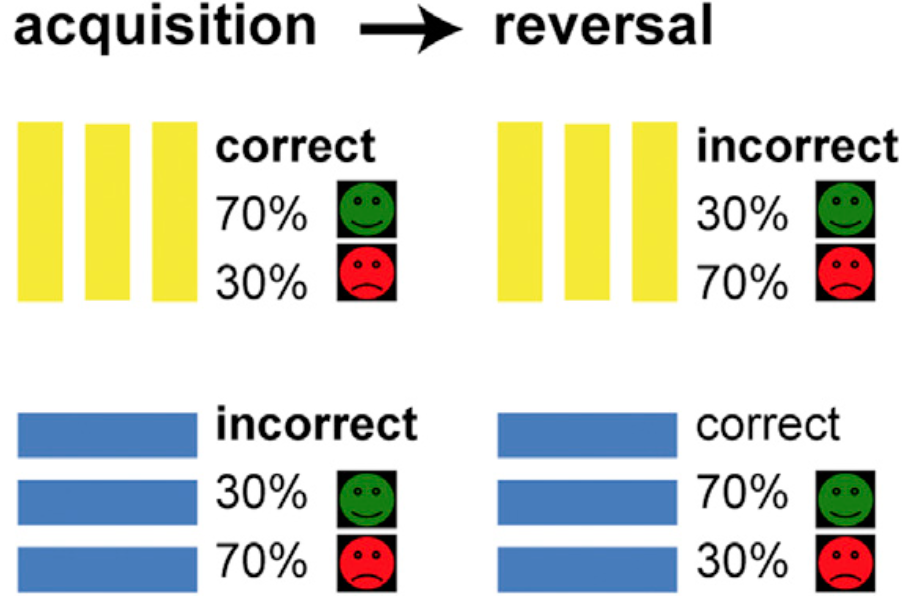Try our favourite tasks!
Measuring motivational action bias
When faced with a promise of reward, we go for it. When threatened with a punishment, we hold back. This task was developed to elicit and quantify the natural tendencies that people have in response to the prospect of a reward (invigoration and approach), and in response to threat of punishment (inhibition / holding back). Participants learn by trial and error, whether to respond or not in order to win rewards or avoid losing points. Most participant show a strong tendency to respond to cues promising reward, and hold back for cues threatening with loss. This very simple paradigm captures a very pervasive Pavlovian response tendency, which has turned out to be sensitive to manipulations of the dopamine system and is altered in a number of neuropsychiatric disorders (Parkinson’s disease, depression/anxiety. The demo below is the simplest version of this task so you can get a flavour of this task. This particular version we have used for an online studies, and you may notice the interspersed attention check trials.
Try out our motivational go/no go learning task
Probabilistic Reversal Learning Task
In order to successfully interact with our environment, it is important to be able to ignore rare events in a stable environment, yet to flexibly update our beliefs when our environment changes. Such an optimal balance of cognitive stability and flexibility depends on successful integration the consequences of our actions over a longer timescale. This very simple reversal learning task, which takes only 5 minutes to complete, has proven to be remarkably sensitive to pharmacological manipulations and across psychiatric disorders. We have developed computational models that allow us to quantify both sensitivity to rare events that should be ignored, and the degree to which people perseverate or are able to flexibly change when the environment demands this.
Try out our probabilistic reversal learning task


